Introduction
What is an Algorithm?
Algorithms are a technical method of sorting posts on a user’s feed based on relevancy rather than simply displaying all posts in chronological order. The goal of algorithms is to show users the relevant content they would most likely engage with rather than just content they might just scroll past. This new technology has received backlash from some users for various reasons, including hiding the content they want to see and increasing the propaganda and misinformation shown on some feeds. The spread of misinformation through social media algorithms, especially regarding the COVID-19 pandemic, has created a debate on how these algorithms should be created and what social media companies should be doing to stop this spread of misinformation and disinformation.
When social media sites were first launched, they initially showed content in the order posted and by keyword searches. Major platforms recently began shifting away from chronological order, moving more towards selective algorithms.
Edgerank
In 2007, Facebook tried resolving issues of user dropout by implementing one of the first semi-successful social media algorithms. Edgerank was used with the idea that a user’s newsfeed focused on three fundamental principles:
- The interactions (comments, likes, etc.) between Facebook friends and pages.
- The type of content a Facebook user is likely to look at or post (like a picture, video, or a status update).
- How quickly Facebook posts become irrelevant to users.
These three principles meant that if a user “liked” a certain friend’s pictures…
- That person’s posts would show up first.
- If a user “liked” video content, they would receive more videos
- If a post were circulated for long enough that fewer people interacted with it, that post would no longer be displayed on a person’s newsfeed.
In 2009, Facebook formalized using algorithms based on an individual’s behavior to determine what posts showed up on their feeds and in what order. It was originally designed to understand which posts received the most attention and to generate a personalized feed for each user.

Mainstream Algorithms
Social media organizations use these algorithms to promote unique content designed to get higher retention rates on the website. For instance, YouTube algorithms prefer ten-minute videos, and creators have found unique methods to use the system to maximize their profits-per-video. Companies like The Daily Wire have also figured out ways to exploit Facebook algorithms to build targeted ads and reach the most consumers.
Although The Daily Wire has promoted its content on Facebook, many conservatives believe that algorithms hide conservative content and promote left-leaning sources. In part, that is a fair assertion: several high-profile right-wing pundits have been banned from social media sites, including Mike Lindell, Sidney Powell, Marjorie Taylor Greene, and most notoriously, President Donald Trump. However, studies have suggested that some of those same prominent accounts are the most likely to post content against the platform’s community guidelines. It’s also true that posts from popular conservative commentators like Ben Shapiro tend to dominate Facebook, shedding some doubt on the claim.
Social media sites also block certain content due to international agreements with countries such as China, which have strict censorship rules. In 2020, YouTube automatically deleted “共匪” (“communist bandit”) and “五毛” (“50-cent party”) from comment sections of videos in America. These are phrases deemed offensive to the Chinese Communist Party, and YouTube blamed their deletion in the U.S. as a glitch in the algorithm.
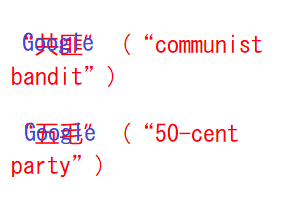
With the rise of Covid-19, some Democrats viewed algorithms as a tool to combat the spread of misinformation. Facebook, Youtube, Instagram, and Twitter began to give keyword preference to posts about Covid-19 to link information from the CDC. Social media sites also utilize this function for posts about election fraud, vaccinations, and other contentious content types.
Shadow Banning

Shadow banning is a practice allegedly used by platforms that prevents a user’s content from being seen by others - either partially or totally - without the user being notified or aware of it. This is typically done as a consequence of violating a platform’s rules and uses an algorithm to downrank that user's profile and content. Many conservatives have argued that this practice is used against politicians to give an advantage to certain candidates. If less voters can access their social media, the less votes they might recieve.
Freedom Phone
In 2021, Bitcoin investor Erik Finman developed the Freedom Phone to provide a product that prevents organizations like Google from tracking user information. The phone comes preloaded with apps banned from Google Play and the Appstore, such as Parler, Rumble, OneAmerica News, and Fortnite. The phone also includes DuckDuckGo and a dual removable sim-tray, features designed to prevent tracking. Ultimately, the Freedom Phone may not have the same camera capabilities as an iPhone or the processing power and storage of an Android. Still, it provides the service of allowing users to access banned apps. Some have argued that alternative apps and devices, such as the Freedom Phone, could circumvent algorithms which are claimed to censor certain content.

The Freedom Phone blew up on social media following an endorsement and referral code from right-leaning political commentator Candace Owens. While many right-leaning individuals supported the phone, technology blogs were skeptical of the actual phone specs. The Freedom Phone is a modified Umidigi sold for $500 compared to the $200 original. Founder Erik Finman later related the price increase to ethically sourcing phone components in countries other than China. However, critics also point out that Umidigi is a Chinese company, negating that the Freedom Phone is not Chinese-made.
Discussion Questions
- Is it dangerous to prioritize content that gets the most interaction?
- Does the algorithm process prioritize potentially polarizing content?
- Does this practice unfairly target specific users?
Terms
Social Media. Social media sites are websites and applications designed to create virtual communities for users from all countries to interact by sharing posts and information. These range from large, big tech platforms to smaller applications.
Demonetization occurs when platforms deny content creators the opportunity for paid advertisements on their videos. This usually happens when content creators violate platform guidelines. Demonetization takes away a creators’ sources of income on the site.
Algorithms are a list of instructions that helps a computer use data to complete a specific task. In terms of social media, algorithms are a technical method of sorting posts on a user’s feed based on relevancy rather than displaying all posts in chronological order. Algorithms aim to show users the relevant content they would most likely engage with rather than just content they will scroll past.
App/Play Store. An app store is a digital distribution platform that allows people to buy or download digital apps on their devices. The Playstore is Google’s official app store available on Android devices.
Terms of Service (ToS). Also known as terms and conditions, ToS gives users a breakdown of all legal responsibilities of community members, disclaimers, and liabilities that a user must agree with to use the company’s service.
Media moderators manage and review activities like comments and feedback and ensure services are being upheld on a specific social media platform.
Strike Policies. Some platforms have strike policies (three-strikes or even five) to warn users of their failure to comply with platform policies. Users receive strikes for posting content that violates specific policies.
Misinformation is false or inaccurate information shared between people without the intention to deceive. This can include conspiracy theories that spread online.
Disinformation is the spread of false information with the intent to deceive. While misinformation is not deliberate, spreading disinformation is. Sometimes, people spread disinformation to give a group a false sense of hope or security on an issue.
Shadowbanning, also called stealth banning, ghost banning, or comment ghosting, is the practice of blocking or partially blocking a user or their content from an online community so it will not be readily apparent to the user. For instance, shadowbanned comments posted to a blog or media website will not be visible to other users accessing the site. Sometimes platforms shadowban by removing subscriptions from users, often while trying to delete bot accounts.
Narratives
Left Narrative
Social media companies’ algorithms amplify online misinformation, weakening Americans’ confidence in our institutions. Medical misinformation has caused lower vaccination rates, resulting in unnecessary Covid-19 cases and deaths. Additionally, conspiracy theories about the 2020 election have incited violence, including the events on January 6. Social media platforms must prioritize accurate information over highly engaging content and flag all misinformation to protect public health and American democracy.
Right Narrative
Social media organizations claim to work against the spread of misinformation by flagging certain posts, but then use that unilateral power to ban conservatives. Often, what left-leaning social media sites deem to be “misinformation” are conservative ideas they wish to censor. For example, social media sites have labeled doctors sharing their medical opinions on Covid-19 and vaccines as misinformation and have deleted videos of potential election fraud because it does not suit the left-wing narrative.
Bipartisan Narrative
Social media allows information to spread very quickly. With misinformation appearing everywhere, there should be some method to filter out the truth. Also, large social media companies need a system that restricts illegal content without requiring thousands of moderators.
Classroom Content
Browse videos, podcasts, news and articles from around the web about this topic. All content is tagged by bias so you can find out how people are reacting across party lines.

White House slams Facebook as Conduit for Covid-19 Misinformation
- Article •
- 6/15/2021
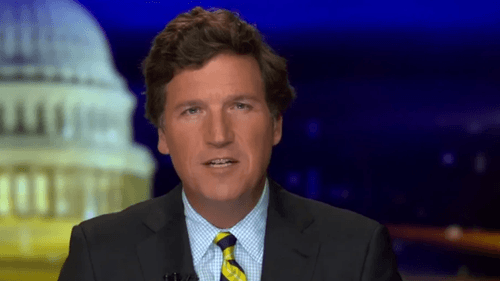
Public confidence in Covid-19 vaccine will not be achieved by big tech censorship
- Article •
- 11/17/2020

Doctors say covid myths on social media are spreading faster than the virus itself
- Article •
- 8/1/2020

Facebook and YouTube Ban Video Of Doctors Talking COVID, Silenced Doctors Hold Press Conference
- Video •
- 6/28/2020

#Scamdemic, #Plandemic, #Scaredemic: What Parler Social Media Platform Tells Us about COVID-19 Vaccine
- Academic •
- 3/22/2021

Extremely Online: The Fight Against COVID-19 Vaccine Misinformation
- Podcast •
- 8/23/2021
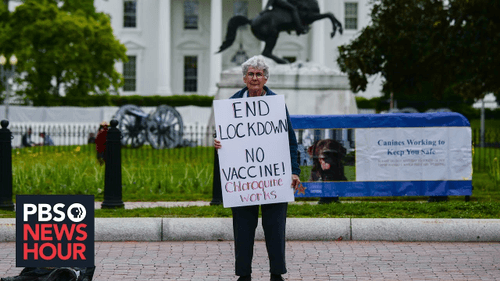
The dangerous global flood of misinformation surrounding COVID-19
- Video •
- 3/28/2020
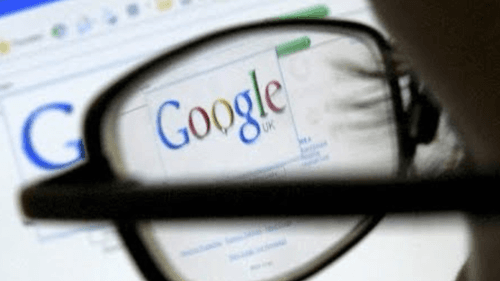
Google Turning into “Censorship Engine” – Reporter
- Video •
- 6/31/2017

How to spot COVID-19 misinformation
- Video •
- 3/28/2021

Do NOT buy the Freedom Phone!! 🤬
- Video •
- 6/24/2021

Censor-proof ‘FreedomPhone’ Sparks Establishment PANIC
- Video •
- 6/24/2021
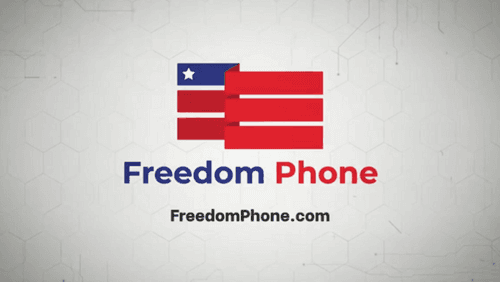
Official Phone Specs
- Other •
- 8/8/2021

Erik Finman: Dispelling myths about the Freedom Phone
- Podcast •
- 6/23/2021


